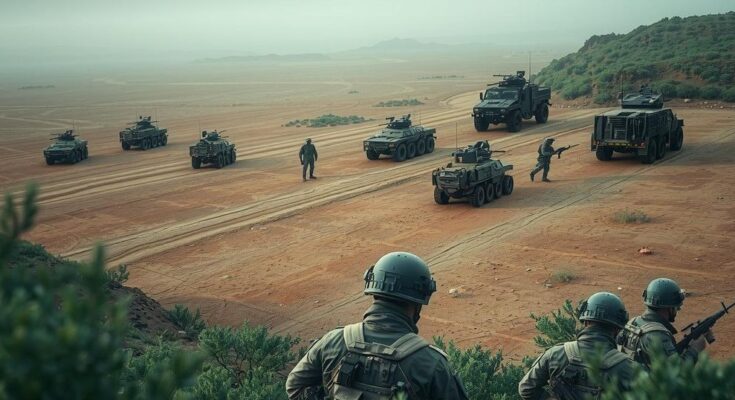Ugandan troops have been deployed to Juba, South Sudan, due to increased tensions and fears of a collapsing peace deal. The Ugandan army aims to protect the territory, and concerns rise over potential renewed conflict amidst ongoing violence and political instability in the region.
The deployment of Ugandan special forces to South Sudan’s capital, Juba, comes in response to escalating tensions within the region. Military actions arise amid concerns that the fragile peace accord could potentially disintegrate due to recent hostilities among rival factions in northeast South Sudan.
Uganda’s army chief, Muhoozi Kainerugaba, affirmed this military action, stating, “As of two days ago, our Special Forces units entered Juba to secure it. We shall protect the entire territory of South Sudan like it was our own.” Additionally, army spokesman Felix Kulayigye confirmed the operation, emphasizing that the troops were dispatched to safeguard the South Sudanese government.
South Sudan has faced ongoing violence and political turbulence. After supporting President Salva Kiir during the civil war in 2013, Ugandan troops formally withdrew in 2015, but tensions persisted. The 2018 peace agreement between Kiir and Vice President Riek Machar temporarily quelled hostilities, yet violence has recently resurfaced, particularly in Upper Nile State.
Supporters of Kiir attribute blame to Machar’s forces and the White Army militia composed of young fighters from the Nuer ethnic group. The United Nations has expressed concern over an “alarming regression” in South Sudan, cautioning that prior peace efforts are in jeopardy. The International Crisis Group further highlighted the severity of the situation, indicating that the nation is rapidly heading towards a potential war.
In summary, the entrance of Ugandan troops into South Sudan signifies a critical response to the volatile political landscape and escalating tensions. The preventive measures taken underscore the risk of renewed conflict despite previous peace agreements. With ongoing violence, the international community remains attentive to the changing dynamics that threaten regional stability.
Original Source: globalsouthworld.com




